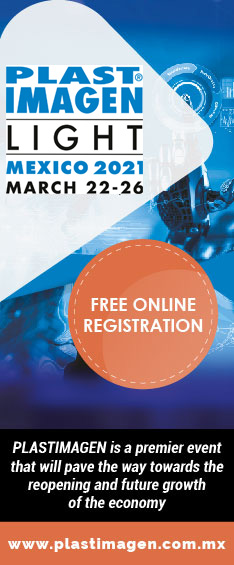| Plastics News |
Covestro teams up with FoamPartner to develop automotive foams partially derived from CO2
August, 31, 2020- In addition to mattresses, sports floors and textile fibres, Covestro has opened up a further area of application for the use of CO2 in plastics production: Now foams for the automotive industry can also be produced partly using carbon dioxide instead of fossil raw materials such as crude oil. The innovative precursor cardyon is used for this purpose, with which the Swiss company FoamPartner produces foams for various areas in the vehicle interior. "We are now taking another important step towards using carbon dioxide as an alternative raw material in the chemical industry on an even broader scale," says Sucheta Govil, Chief Commercial Officer (CCO) of Covestro. "In doing so, we are accelerating the transformation to a circular economy and supporting our positive momentum for growth in recent weeks." "Novel materials like cardyon are extremely important for the development and responsible production of sustainable foams," adds Michael Riedel, CEO of FoamPartner. "We are pleased to work with Covestro as one of the innovation leaders in the use of alternative raw materials." The sustainable foams that FoamPartner will market in the future as a new product series under the name OBoNature will be laminated with a textile in a next step and will thus be used in the interior of vehicles. They will be processed primarily in headliners, but also in door panels and armrests, as well as in car seat covers. In addition to their resource-conserving production, the particularly low-emission foams are characterized by a longer service life and material resistance. Moreover, thanks to their optimized lamination behavior, they can be processed in reduced material thickness while at the same time enabling faster laminating processes. This saves both material and manufacturing costs. Strategic orientation ensures profitable growth In addition to alternative raw materials such as CO2, biomass and waste materials, the focus of Covestro to promote circular economy is on the development of innovative recycling technologies and the use of clean energy sources such as wind power in production. This long-term strategic orientation along innovation and sustainability trends drives the profitable growth of Covestro. Despite the significant impact of the coronavirus pandemic in the first half of 2020, the company has experienced a stable upward trend in global demand since mid-May. In July, volumes sold were already back at the previous year's level, and the positive trend continued in August. For this reason, Covestro expects an EBITDA of around EUR 350 million for the third quarter, compared with EUR 125 million in the previous quarter. Versatile application accelerates circular economy Covestro has developed a novel technology with which up to 20 percent CO2 can be incorporated into so-called polyols. These are key components for polyurethanes, a widely used and versatile type of plastic. In this way, fossil raw materials are replaced, making Covestro an important contribution to resource conservation. Since the carbon contained in CO2 is recycled, the new process also supports the circular economy. CO2 polyols of the brand cardyon are already being used in other applications. In addition to foams in mattresses and upholstered furniture, they are already being used for special adhesives for sports flooring underlays. In a further research project, it has also been possible to produce elastic textile fibres based on cardyon. They can be used, for example, in stockings and medical textiles, replacing conventional oil-based elastic fibers. Among other things, Covestro is working with various textile manufacturers to bring fibre production to industrial scale and the novel fibres to market maturity. FoamPartner (www.foampartner.com) , founded in 1937 and headquartered in Wolfhausen (Switzerland) and with 13 Centers of Competence across Europe, America and Asia-Pacific, is a global leader in foam technology. The company offers its customers a broad portfolio of foam and other material solutions engineered to high standards of form, function and quality. More than 1,100 employees worldwide develop, manufacture, process and distribute custom-tailored polyurethane foam products focused on three market segments: Mobility, Specialties, and Living & Care. With 2019 sales of EUR 12.4 billion, Covestro (www.covestro.com) is among the world’s largest polymer companies. Business activities are focused on the manufacture of high-tech polymer materials and the development of innovative solutions for products used in many areas of daily life. The main segments served are the automotive, construction, wood processing and furniture, and electrical and electronics industries. Other sectors include sports and leisure, cosmetics, health and the chemical industry itself. Covestro has 30 production sites worldwide and employs approximately 17,200 people (calculated as full-time equivalents) at the end of 2019. Source: Covestro |


